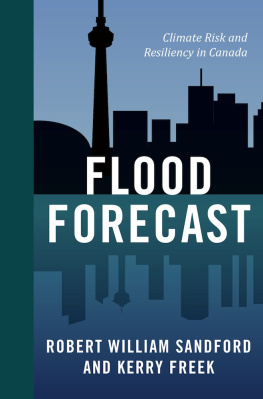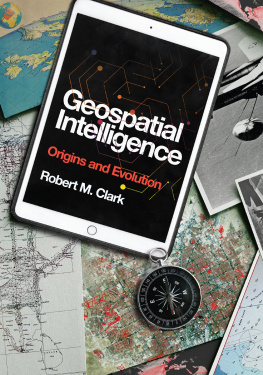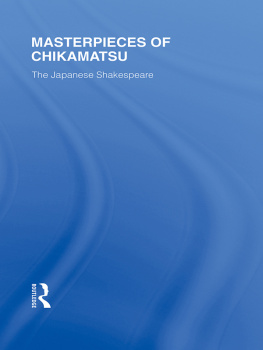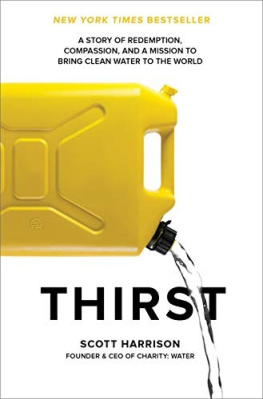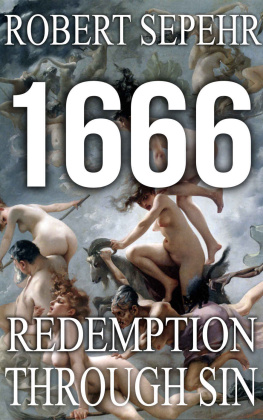Robert Clark - Dark Water: Flood and Redemption in the City of Masterpieces
Here you can read online Robert Clark - Dark Water: Flood and Redemption in the City of Masterpieces full text of the book (entire story) in english for free. Download pdf and epub, get meaning, cover and reviews about this ebook. year: 2008, publisher: Doubleday, genre: Detective and thriller. Description of the work, (preface) as well as reviews are available. Best literature library LitArk.com created for fans of good reading and offers a wide selection of genres:
Romance novel
Science fiction
Adventure
Detective
Science
History
Home and family
Prose
Art
Politics
Computer
Non-fiction
Religion
Business
Children
Humor
Choose a favorite category and find really read worthwhile books. Enjoy immersion in the world of imagination, feel the emotions of the characters or learn something new for yourself, make an fascinating discovery.

- Book:Dark Water: Flood and Redemption in the City of Masterpieces
- Author:
- Publisher:Doubleday
- Genre:
- Year:2008
- Rating:5 / 5
- Favourites:Add to favourites
- Your mark:
- 100
- 1
- 2
- 3
- 4
- 5
Dark Water: Flood and Redemption in the City of Masterpieces: summary, description and annotation
We offer to read an annotation, description, summary or preface (depends on what the author of the book "Dark Water: Flood and Redemption in the City of Masterpieces" wrote himself). If you haven't found the necessary information about the book — write in the comments, we will try to find it.
Dark Water: Flood and Redemption in the City of Masterpieces — read online for free the complete book (whole text) full work
Below is the text of the book, divided by pages. System saving the place of the last page read, allows you to conveniently read the book "Dark Water: Flood and Redemption in the City of Masterpieces" online for free, without having to search again every time where you left off. Put a bookmark, and you can go to the page where you finished reading at any time.
Font size:
Interval:
Bookmark:

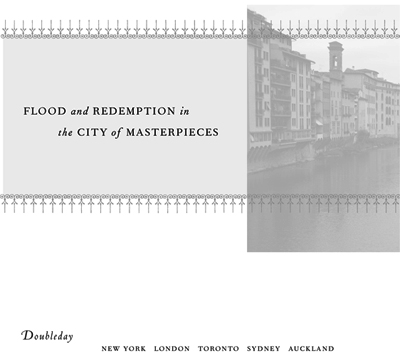
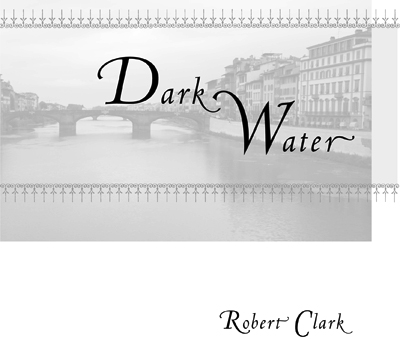
D ark W ater
Contents
FOR ANDREW,
vero fiorentino
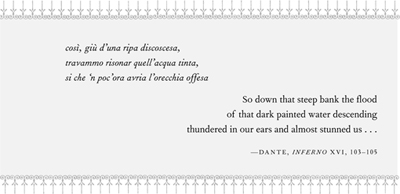
D ark W ater
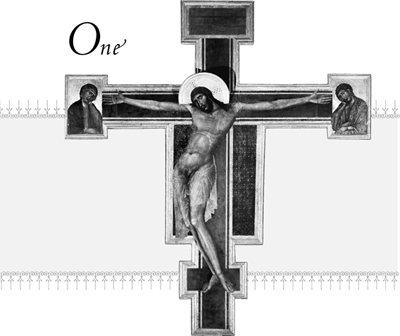
I grandi fiumi sono limmagine del tempo,
Crudele e impersonale. Osservati da un ponte
Dichiarano la loro nullit inesorabile...
The great rivers are the image of time,
Cruel and impersonal. Observed from a bridge
They declare their implacable nullity...
EUGENIO MONTALE,
LARNO A ROVEZZANO
Cimabue Crocifisso, c. 1288 (photographed before November 4, 1966) (ArtResource Inc.)
T here is Florence and there is Firenze. Firenze is the place where the citizens of the capital of Tuscany live and work. Florence is the place where the rest of us come to look. Firenze goes back around two thousand years to the Romans and, at least in legend, the Etruscans. But Florence was founded in perhaps the early 1800s when expatriate French, English, Germans, and not a few Americans settled here to meditate on art and the localethe genius of the placethat produced it. Over the next two centuries a considerable part of the rest of the world followed them for shorter visitsvisit being derived from the Latin vistare, to go to see, and, further back, from videre, simply to seein the form of what came to be called tourism. The Florentines are here, as they have always been, to live and work; to primp, boast, cajole, and make sardonic, acerbic asides; to count their money and hoard their real estate, the stuffla robain their attics and cellars, and their secrets. We are here for the view.
But its so easy to miss so very much. The more you look, the less you see. If something is not after a fashion framed, hung on a wall, stood on a pedestal, monumentalized, encased by columns and architraves, boxed in marble, or dressed in architectural stone, it fizzles into background. If the conjunction of earth, water, and sky doesnt form a landscapenature on exhibitionrather than mere land, they disappear, recede into the black hole, the gorga nera, the underworld of the unseen.
For example, in late October 2005 Id already been in Florence two months, gazing at art, gazing at the opaque screen of my laptop, before I noticed the plaque. I suppose weCarrie, Andrew, and Ihad settled into a routine. We were living on the Piazza del Carmine. At one end is the church of Santa Maria del Carmine, to which our elderly neighborknown to us only as la Signorashuffles off to mass each day. Within the church is the Brancacci Chapel and its frescoes by Masaccio. Historys first art historian, a Florentine named Giorgio Vasari, called them la scuola del mondo, the art school of the world, the essential work that every other Renaissance artist came to study, the spark that set off the fire. The image that most of us know best is the Expulsion from the Garden of Eden, the harrowed and weeping figures of Adam and Eve stoop-shouldered, clutching their genitals, the shame and the pity that launched the fallen world. You look at them and for a moment it seems that all that too began just here.
At the other end of the piazza is an enormous palazzo Id heard belonged to the Ferragamo family, the shoe and fashion dynasty from Naples to whom its said many things in Florence belong. Sometimes you can see into the central garden and its lemon grove through the gate. Once I saw a Labrador retriever gamboling among the trees. Ive never seen anyone coming or going, but then Florence seemed to me very much about boundaries and privacysecret and hidden things. That sense was abetted by the annoyingly narrow sidewalks upon which two people can scarcely pass each other without one of them having to step off the curb. The walls of the palazzi press right up against the street, fiercely rusticated, studded with massive ring hitches and iron sconces for riders and torches that disappeared long ago. The walls ascend beyond your sight and inside the palazzi, Ive heard, descend nearly as far in layers of cellars, tunnels, and strong rooms. Youre not, of course, meant to see any of this. Youre not even meantso the unnavigable sidewalk seems to intendto stop here, to consider it.
Between the church and the palazzo with the lemon grovebetween the naked shame of Adam and Eve and the veiled upstart pride of the Ferragamosis a caf and bar called Dolce Vita. Im told it was the chicest nightclub in Florence during the nineties and that, after a brief decline at the turn of the millennium, its come back as il pi trendy place in the city. Unlike its unforthcoming neighbors, it spills outward into the piazza, past the jetty of the outdoor seating area, and, as the night ripens, onto the street, where the police are writing tickets for the double- and triple-parked Alfas, Mercedeses, Lamborghinis, and Ferraris. Ive never stopped herenever mind gone insidebut Ive pressed through the beautiful throng in the evenings and perhaps squeezed past an Italian celebrity, a soccer star, a Medici or Frescobaldi or, unbeknownst to me, a Ferragamo.
My life, rather more circumscribed, was across the street. Our apartment was on the second floor of what is called a palazzoas is any large edifice built around a central cortilebut the building is scarcely grand. I suppose its four or five hundred years old, and the stonework is pitted and frayed. A family of emigrants from somewhere in the Philippine archipelago lives across the cortile, and adjacent to them the multifloored apartment of the aristocratic owners ranges upward to a series of terraces. Theres a crest over the door and Ive caught a glimpse of the gold-framed paintings inside and the fusty, once elegant furniture that signals the presence of minor nobility or old money in ebb. Then theres la Signora and us. Ive never seen anyone else who lives here. In the cortile there is a heap of rubble and broken stucco. Every three or four weeks someone turns up and, unseen, hauls away a fraction of it. I suppose it will all be gone in a year or so.
I worked in the mornings in our living room and I could see la Signora trudge by, a scarf pulled over her head, through the window that looks out onto the common corridor between our apartments. Inevitably she was looking for her cat, who had wandered into the hall. Amore, tesoro. Vieni qu a Mama, shed call, pushing her lips out from the stumps of her teeth as though in a kiss. I went down to the vestibule for the mail each day around eleven, and sorted through the billsgas, electricity, water, school luncheseach of which would have to be paid in cash at the post office, signed and countersigned, stamped and stamped again. It was on one of those trips that I noticed, above the rank of ten mailboxes, an inscription:
IL IV NOVEMBRE 1966
LACQUA DELLARNO
ARRIV A QUESTALTEZZA
and beneath it a long red line. The Arno, it said, had reached this height on November 4, 1966.
It was carved in the same squarish, Roman script you see in other inscriptions on walls around the city. They usually seem to be quotations from Dante marking places where he perhaps saw Beatrice; where an eminent family or personage that he later met in Purgatory or, more likely, Hell once lived; or a simple stanza of his heroic melancholy, connected to nothing more than Florence, the glory and pity of it.
Next pageFont size:
Interval:
Bookmark:
Similar books «Dark Water: Flood and Redemption in the City of Masterpieces»
Look at similar books to Dark Water: Flood and Redemption in the City of Masterpieces. We have selected literature similar in name and meaning in the hope of providing readers with more options to find new, interesting, not yet read works.
Discussion, reviews of the book Dark Water: Flood and Redemption in the City of Masterpieces and just readers' own opinions. Leave your comments, write what you think about the work, its meaning or the main characters. Specify what exactly you liked and what you didn't like, and why you think so.


